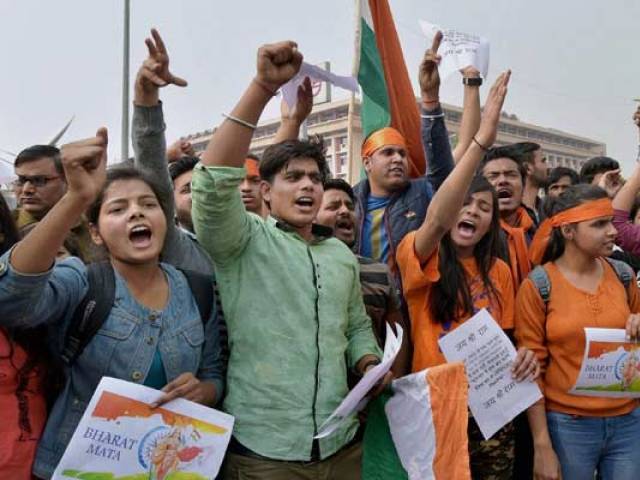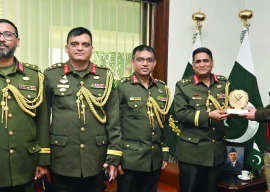
Rahman urged the government to respect civil liberties. He said peace could not be established if it failed to do so. He was speaking at Foundering Freedoms session on the concluding day of the Lahore Literary Festival. Other speakers at the session were Indian lawyer AG Noorani and former Supreme Court Bar Association president Asma Jahangir. Rahman said under the Universal Declaration on Human Rights state institutions were bound to uphold basic human rights of their citizens.
No practical rights for the transgender in Pakistan
He said violation of fundamental rights on grounds that the country was in a state of conflict had now become a norm.
He said stripping terrorism suspects of their fundamental rights was not acceptable. Citing the Johannesburg Principle on National Security, he said that under international law the government could not take action against anyone without establishing that they posed a credible threat to national security. He also stressed the importance of upholding presumption of innocence. “The onus of establishing one’s innocence has been on the suspects so far,” he said.
“There are issues on which one cannot have any debate on a public forum including the parliament. This is a problem,” he said.
An even greater problem was that most people in the country had become cynical about the prevalent state of affairs. “People have given up hope that things can change,” he said. He said there was no way to independently verify the number of casualties in the military operation underway in the Federally Administered Tribal Areas (FATA).
US to persuade India to re-engage with Pakistan
Rahman also spoke about denial of justice in matters like allegations of blasphemy.
Asma Jahangir reiterated the concerns raised by Rahman. She said political leadership, media and courts shared responsibility for state institutions’ obsession with national security. She said she could not recall many instances of court ruling in favour of curbing fundamental rights during her legal career. However, she said things had changed overtime. Now, she said, courts were restraining labourers and employees of statutory bodies from protesting for their rights and issuing directives for the media to censor a politician.
Jahangir stressed the need for collaboration between civil rights activists in India and Pakistan. She said activists in both countries should hold comprehensive debates and devise joint courses of action. She said this could help overcome fear. AG Noorani held the press responsible for curbs on civil liberties. He said the press had become a commercial entity. The interests of the press today did not correspond to the public interest, he added.
Also finding fault with activists, Noorani observed that advocates of civil liberties in India and Pakistan did not bother to do their homework properly. He said they didn’t concern themselves with study of relevant laws. “They’re also very selective about what issues they want to take up,” he said. On problems faced by minority communities, Noorani said they could do a lot to solve these problems on their own. It was their duty to assert themselves, he said. Earlier, at the beginning of the session, all three panellists complained of mismanagement.
Published in The Express Tribune, February 22nd, 2016.











1732012115-0/Untitled-design-(14)1732012115-0-270x192.webp)
1736844405-0/Express-Tribune-(2)1736844405-0-270x192.webp)










COMMENTS
Comments are moderated and generally will be posted if they are on-topic and not abusive.
For more information, please see our Comments FAQ